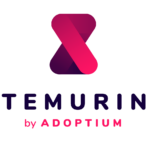The Eclipse Foundation is anything but in a state of flux, lending a bit of irony to the name of its next big tool initiative (to bring desktop Eclipse together with Web-based Orion) being Flux.
Mike Milinkovich, executive director of Eclipse, announced the project at EclipseCon, which returned to San Francisco after a long stay in Virginia. Casting his gaze 10 years down the road, he said in his keynote that he expects the Eclipse Orion project to become more important. (Orion is the Web-based IDE tool chain created at IBM that was donated to the Eclipse Foundation.)
“Flux integrates the Web-based tools of Orion with the desktop tools of Eclipse, which really provides developers with the ability to use the right tools to work on their code, wherever they are,” said Milinkovich. “They can use Orion to work on code on their tablet, or in an environment where a Web-based browser is the right way to go.”
(Related: Java SE 8 is released)
Milinkovich also said that “software is eating the world. That’s a glib statement, but when people say that, they’re referring to things like how important applications are becoming, and how much of our day-to-day lives are taken up in the browser.
“One of the trends I think is really important, and one that Eclipse is particularly well positioned to take part in, is in a lot of what we consider industrial sectors like aerospace and automotive engineering. What we’re seeing is these very traditional organizations that have prided themselves on their engineering are being forced to deal with the fact that software is becoming an absolutely core skill inside their organization. They’re transitioning their organization to be much more software-centric.”
This year’s big themes for the show are the Internet of Things, Java 8 and C/C++. Chief among those is Java 8, which was released yesterday. To coincide with the new version of the language, the Eclipse Foundation also released plug-ins for Java 8.
“To my recollection,” said Milinkovich, “this is the first time we’ve ever shipped Eclipse-based tools for a new release of Java the same day the Java release itself went out. I think that’s really great news for the team. The Eclipse Java development tooling team worked very hard to make that happen.”
Elsewhere at the show, the C Development Tooling chain, or CDT for short, got its own theme day. “I know that common perception is that Eclipse is all about Java developers,” said Milinkovich. “But the fact is CDT is extremely well regarded and used in the industry: in support of tool chains for Linux, for real-time operating systems, and increasingly for devices in the Internet of Things.”
That’s another major theme of the show, said Milinkovich: The Internet of Things is increasingly being programmed from within Eclipse. One talk at the show, for example, detailed how to build applications using CDT and the new Parallella open hardware multicore processor board. This board is similar to a Raspberry Pi, but includes 18 cores for around US$100.






